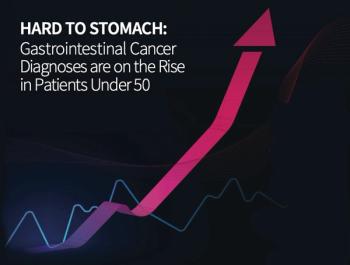
New clinical trials open doors for positive changes in treatment of colorectal cancer.

New clinical trials open doors for positive changes in treatment of colorectal cancer.

It is difficult for anyone to receive a cancer diagnosis, but when someone who is younger than average finds out they have gastrointestinal cancer, they may face other challenges.

A new technology that can detect small amounts of circulating tumor DNA in the blood of patients who previously received a diagnosis of certain types of cancer may dramatically accelerate the ability to cure more patients, says an expert from the University of Texas MD Anderson Cancer Center.

The identification of rare genomic alterations in patients with colorectal cancer gives oncologists the opportunity to treat patients who otherwise might not have many options.

In clinical trials, Opdivo in combination with chemotherapy improved overall survival and progression-free survival compared to chemotherapy alone.

Genomic testing has allowed patients to receive more specific drugs that target mutations in their tumors.

As the incidence of GI cancer creeps up among younger patients, so does the question of why.

Following resection with radiotherapy increased survival rates for patients compared with those who did not receive the additional treatment.

Sending a text message reminder to participants about their upcoming fecal immunochemical test improved previously poor adherence rates for colorectal cancer screening.

For patients with gastric/ gastroesophageal cancer, treatment with Bavencio after chemotherapy shows favorable safety, but no overall survival improvement.

Sometimes the only way to get over something is through, and cancer is no different. A survivor gives his perspective on gutting out treatment for cancer.

I am a nurse practitioner and a professor. But my best job was being a daughter and caregiver to the most wonderful mother anyone could ever have.